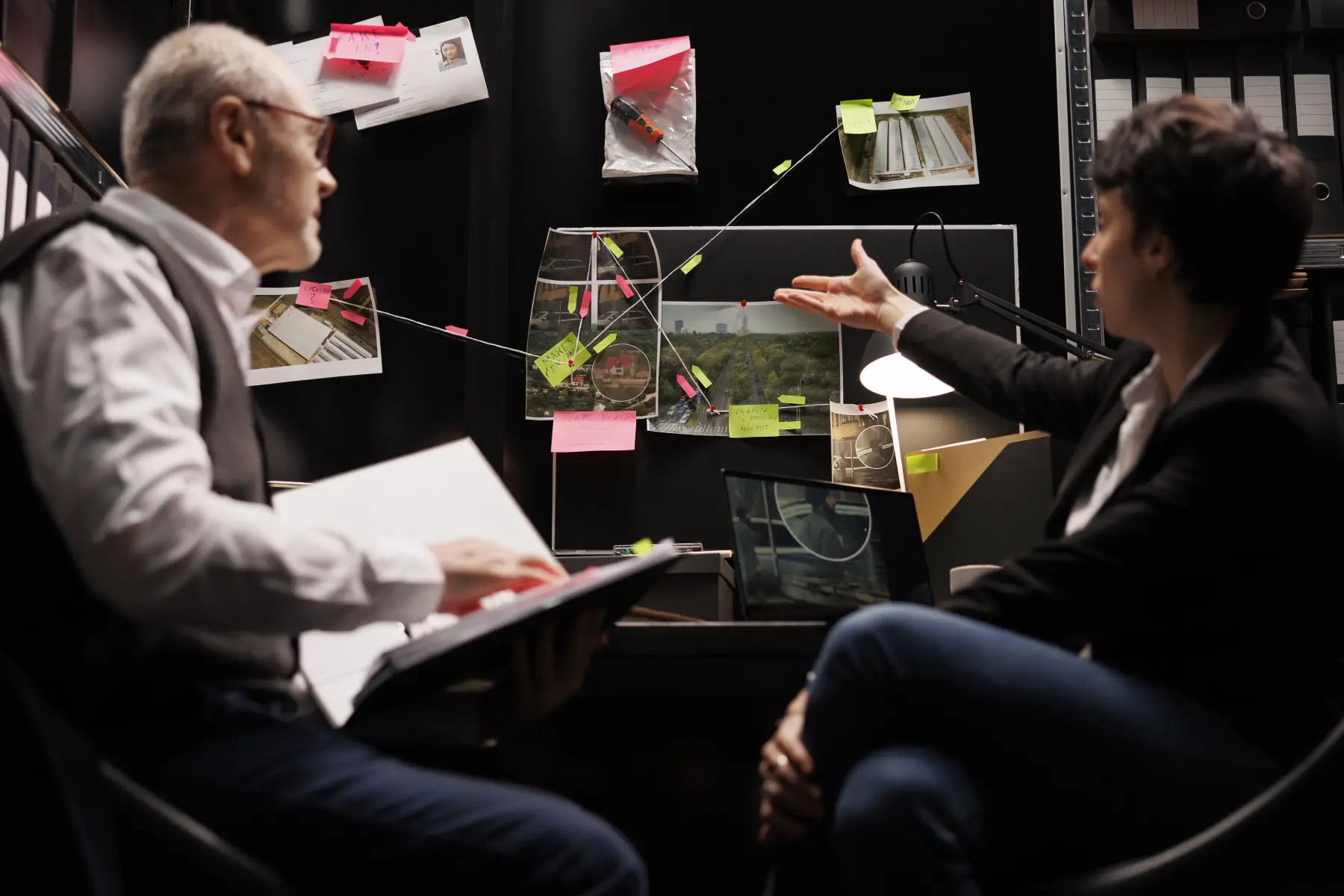Introduction: A Poet for the Modern Professional World
In today’s dynamic business environment, organisations face the dual challenges of fostering innovation while cultivating a meaningful workplace culture. Heightened demands for creative thinking, along with the fast-paced nature of work, can often lead to stress and disengagement among employees. As business professionals grapple with these complexities, they may find unlikely sources of wisdom that can offer transformative insights. Among such sources is the work of the late Irish poet and philosopher, John O’Donohue, whose profound reflections on the human experience resonate across cultures and disciplines.
John O’Donohue (1956–2008) was not merely a poet; he was a thinker whose influence extended to areas such as philosophy, spirituality, and leadership—all highly relevant to contemporary business practices. His writings weave together themes of belonging, creativity, and connection, which possess significant implications for today’s business leaders. Notably, O’Donohue’s signature concepts of “soulful leadership,” fostering “creative collaboration,” and enabling “slow, mindful innovation” can realign organisational priorities in a world often dominated by metrics and immediate results.
This whitepaper delves into key insights drawn from O’Donohue’s philosophy and poetry, aligning them with contemporary academic research. It aims to provide actionable strategies that business professionals can implement to foster a more engaged, innovative, and human-centred workplace.
John O’Donohue: A Brief Background
John O’Donohue hailed from County Clare, Ireland —a landscape steeped in natural beauty and rich in cultural heritage. He studied at University College Dublin and later pursued a PhD in philosophical theology at the University of Tübingen in Germany. O’Donohue’s academic background laid a foundation for his eventual transition to writing and public speaking, allowing his insights to reach a broader audience.
His most notable works, including Anam Cara (meaning “soul friend” in Gaelic) and Eternal Echoes: Exploring Our Hunger to Belong, delve into themes of life, death, love, and the quest for belonging and connection. Deeply influenced by Celtic spirituality, O’Donohue’s ideas emerged from a worldview that sees the interconnectedness of all things—a perspective that is particularly vital in contemporary business contexts.
While primarily recognised as a poet, O’Donohue’s writings offer practical wisdom that intersects with the challenges faced by business professionals today. His meditations on the “inner landscape” and the cultivation of wisdom in leadership provide essential frameworks for those seeking to navigate the complexities of modern organisational life.
O’Donohue’s Core Concepts for Business Professionals
O’Donohue’s philosophy includes several key concepts that are directly applicable to leadership, employee engagement, communication, and organisational growth. Each of these ideas can empower business professionals seeking to create environments that foster creativity, collaboration, and a sense of belonging.
1. Soulful Leadership: Leading with Presence and Authenticity
O’Donohue’s advocacy for “soulful leadership” challenges conventional notions of leadership based solely on authority or productivity. He emphasises that effective leadership must be grounded in authenticity, empathy, and ethical clarity. In a world where performance metrics often overshadow human connections, O’Donohue reminds us of the importance of leading from a place of deep understanding and self-awareness.
Insights for Professionals:
- Connection Over Control: Leaders who prioritise connection build trust and loyalty within their teams. When employees feel that their leaders genuinely care about their well-being, they are more likely to engage wholeheartedly with their work.
- Reflective Practice: O’Donohue’s emphasis on inward reflection resonates with the need for leaders to understand their motivations and influences. Reflection enhances decision-making and helps leaders align their actions with their core values.
Academic Backing:
Research in transformational leadership supports O’Donohue’s views, demonstrating that authentic leadership has a positive impact on team performance and organisational citizenship behaviour. A study by Walumbwa et al. (2008) highlights the correlation between authentic leadership and enhanced employee satisfaction, engagement, and performance.
Actionable Strategies:
- Implement Regular Reflection Practices: Encourage leaders to dedicate time for personal reflection, journaling, or meditation. This practice can provide clarity on values and foster a sense of purpose that resonates throughout the organisation.
- Lead with Vulnerability: Leaders should openly share their challenges and values with teams. This can create a safe environment for employees to express their thoughts and feelings, ultimately strengthening team dynamics.
2. The Art of Slowness: Redefining Productivity
In our fast-paced world, O’Donohue’s call for “slowness” serves as a powerful antidote to the haste that often accompanies decision-making and innovation. He argues that slowing down can lead to deeper thinking and more meaningful solutions—a vital insight for businesses striving for sustainable growth.
Insights for Professionals:
- Quality Over Quantity: O’Donohue posits that hasty actions lead to superficial results. Businesses must cultivate a culture that champions depth of thought over speed of execution.
- Embracing Silence: Allowing for moments of silence and contemplation can foster creativity and innovation. Teams benefit from time set aside for quiet reflection, providing individuals with the opportunity to process their ideas freely.
Academic Backing:
Research into “mindful working,” particularly by scholars such as Kabat-Zinn (2003), illustrates how practising mindfulness enhances focus, reduces stress, and improves performance under pressure.
Actionable Strategies:
- Designate Uninterrupted Focus Time: Schedule regular intervals during the workweek where employees can engage in quiet, uninterrupted work. This practice nurtures deep focus and can lead to innovative breakthroughs.
- Host Reflective Retreats: Organise retreats or workshops that emphasise mindfulness and deep reflection for teams. Such events can provide opportunities for bonding and rejuvenation while cultivating a culture of innovation.
3. Belonging: Building Collaborative and Human-Centred Teams
O’Donohue’s explorations of belonging highlight the essential role of emotional connections in the workplace. He maintains that fostering relationships based on mutual respect and empathy can lead to healthier workplace dynamics and enhanced performance.
Insights for Professionals:
- The Power of Connection: Employees who experience a sense of belonging are likelier to be engaged and motivated. Cultivating a human-centred environment can lead to greater job satisfaction and retention.
- Creating Psychological Safety: O’Donohue emphasises the importance of ensuring that team members feel secure enough to express themselves. Organisations must prioritise open communication, valuing each employee’s unique contributions.
Academic Backing:
The results from Edmondson’s (1999) study on psychological safety reveal that environments that promote respect and authenticity improve overall employee performance, corroborating O’Donohue’s call for a culture of belonging.
Actionable Strategies:
- Integrate Team-Building Activities: Implement structured activities that promote team bonding and understanding. These can foster trust and collaboration among team members.
- Encourage Open Dialogue: Create platforms for employees to share feedback and ideas freely. Regular town hall meetings or suggestion boxes can facilitate open communication and reinforce a sense of belonging.
4. Beauty as a Business Value: Fostering Creativity and Inspiration
In his reflections on beauty, O’Donohue argues that aesthetic experiences invigorate creativity and enhance overall well-being. He believes that integrating beauty into organisational practices and spaces can have a profound impact on employee satisfaction and performance.
Insights for Professionals:
- Aesthetic Environments Enhance Creativity: An office space designed with beauty and functionality can stimulate creativity and innovation. Visual aesthetics can influence mood and productivity.
- Embracing Elegance in Solutions: O’Donohue’s assertion that beauty is vital for creative processes suggests that organisations should seek elegance in both design and problem-solving approaches.
Academic Backing:
Environmental psychology research (Kaplan, 1995) confirms that workspace design has a significant impact on cognitive function and creativity, validating O’Donohue’s emphasis on the importance of beauty in workspaces.
Actionable Strategies:
- Invest in Office Design: Allocate resources for creating aesthetically pleasing and functional office spaces. Incorporate elements such as natural lighting, greenery, and art to create an inspiring work environment.
- Encourage Design Thinking: Foster a culture of design thinking that prioritises elegance and simplicity in problem-solving. Facilitate workshops focused on ideation and the creative process.
Implementing O’Donohue’s Insights in Business
To derive maximum benefit from O’Donohue’s philosophy, organisations can implement targeted initiatives that embrace his teachings. Below are specific strategies that businesses can adopt to integrate his insights into their operational frameworks.
1. Establish a Culture of Reflection
Implementation Steps:
- Host regular reflection sessions where teams can discuss challenges, successes, and lessons learned.
- Create reflection journals for employees to document their thoughts and insights regarding their work experiences.
Expected Outcomes:
Teams become more cohesive as members learn from one another’s experiences, fostering a culture of continuous improvement.
2. Develop Soulful Leadership Training Programs
Implementation Steps:
- Design training programmes for leaders that emphasise emotional intelligence, authenticity, and reflective practice.
- Incorporate role-playing scenarios and mindfulness techniques to enhance empathetic leadership skills.
Expected Outcomes:
Leaders equipped with soulful leadership skills can cultivate more engaged and motivated teams, ultimately leading to improved performance metrics.
3. Foster Psychological Safety Through Communication
Implementation Steps:
- Implement structured feedback loops that enable employees to express concerns and ideas without fear of judgment.
- Train managers on the importance of active listening and constructive feedback.
Expected Outcomes:
An increase in employee engagement and morale as trust and openness permeate the organisation.
4. Introduce Mindfulness and Reflection Retreats
Implementation Steps:
- Organise retreats where employees can practice mindfulness techniques and engage in group reflections.
- Encourage creativity through workshops led by professional facilitators who specialise in fostering innovative thinking.
Expected Outcomes:
Participants return from retreats with renewed energy and creative insights, contributing to a surge in innovative ideas and collaboration.
5. Redesign Workspaces for Creativity and Collaboration
Implementation Steps:
- Evaluate current office layouts and identify opportunities for redesign that facilitate collaboration, creativity, and aesthetic engagement.
- Install collaborative workspaces, lounge areas, and quiet zones that cater to diverse working styles and preferences.
Expected Outcomes:
Enhanced employee satisfaction and productivity, driven by a workspace that supports creativity and team interaction.
The Broader Impact: Culture Transformation through O’Donohue’s Philosophy
Integrating John O’Donohue’s philosophy into business practices transcends merely improving workplace morale and productivity; it represents a broader cultural shift towards more humane and ethical practices. By prioritising soulful leadership, embracing deliberate slowness, cultivating belonging, and valuing beauty, organisations can develop a culture characterised by:
- Resilience and Adaptability: A focus on reflection and mindful practices prepares teams to adapt to changes and navigate challenges creatively.
- Innovation and Creativity: Emphasising beauty and depth fosters an environment where new ideas can flourish, leading to innovative products and services.
- Employee Well-being: A culture that prioritises belonging, authenticity, and psychological safety significantly improves employee well-being, resulting in lower turnover and higher retention rates.
- Ethical Leadership: Leaders who operate from a place of emotional and ethical clarity are better positioned to guide their organisations responsibly, making decisions that consider both financial and social implications.
Through these efforts, businesses can position themselves as leaders not only in their respective industries but also in fostering values of compassion, creativity, and holistic human experience.
Conclusion: A Call for Deeper Leadership in Business
John O’Donohue’s workshop, which combines poetry and philosophy, serves as a significant source of inspiration for business professionals. By engaging with his teachings, organisations gain access to transformative practices that empower employees and enhance collaboration, creativity, and ethical leadership.
In a corporate landscape marked by rapid change and complexity, the wisdom of O’Donohue—rooted in authenticity, compassion, and a quest for beauty—serves as a guiding light. As businesses continue to navigate the needs and challenges of the modern workforce, the integration of these principles is not merely desirable but essential for fostering a thriving and sustainable future.
As O’Donohue eloquently stated, “the heart of human experience can always be found in the places where we touch and celebrate the realm of beauty.” By honouring this call, business professionals can create truly transformative workplaces where individuals flourish, creativity thrives, and organisations achieve not just success but a deeper sense of purpose.
Recommended Reading and References
- Edmondson, A. C. (1999). “Psychological safety and learning behaviour in work teams.” Administrative Science Quarterly, 44(2), 350–383.
- Kaplan, S. (1995). “The restorative benefits of nature: Toward an integrative framework.” Journal of Environmental Psychology, 15(3), 169–182.
- Kabat-Zinn, J. (2003). Mindfulness-Based Interventions in Context: Past, Present, and Future. Clinical Psychology: Science and Practice.
- O’Donohue, J. (1997). Anam Cara: Spiritual Wisdom from the Celtic World. HarperCollins.
- Walumbwa, F. O., Avolio, B. J., Gardner, W. L., Wernsing, T. S., & Peterson, S. J. (2008). “Authentic leadership: Development and validation of a theory-based measure.” Journal of Management, 34(1), 89–126.










